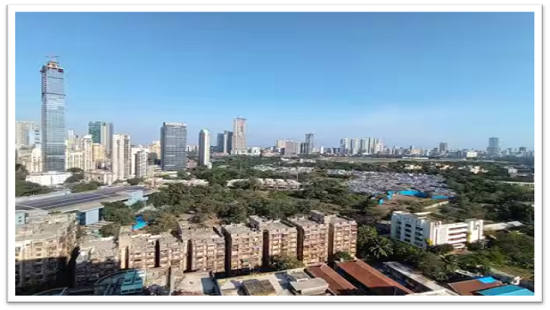
Mumbai’s Redevelopment Momentum Accelerates as Govt Waives Registration Fees for 400–600 Sq. Ft Homes Under Cluster Policy
Mumbai’s redevelopment landscape has long been defined by stalled projects, regulatory complexity, and financial burdens that fall disproportionately on middle- and lower-income households. In a significant attempt to break this cycle, the Mahayuti government has announced a full waiver of registration fees for homes measuring between 400 and 600 square feet constructed under the Cluster Redevelopment scheme. Approved by the Revenue Department under Minister Chandrashekhar Bawankule on November 18, 2025, the decision arrives at a politically crucial moment, with BMC elections around the corner and redevelopment emerging as a core voter concern.
This policy directly benefits tenants and residents in the BMC jurisdiction who are slated to receive larger, modern, and safer homes under redevelopment projects. For lakhs of families who have spent decades in congested and deteriorating buildings, the waiver removes a major cost barrier. Minister Bawankule emphasised that even though the upgraded homes are nearly 200 square feet larger than earlier norms, the registration cost has been entirely eliminated, making redevelopment more affordable and accessible for the city’s working class.
Removing a Persistent Financial Hurdle
Historically, tenants moving into redeveloped buildings were required to pay stamp duty on the additional carpet area offered as part of the project, whether calculated at the ready reckoner rate or the cost of construction. For families already grappling with rising living costs, this expense often ran into several lakhs of rupees, slowing down consent processes and complicating negotiations between residents and developers.
Under the new policy, this burden has been lifted. The entire carpet area of the new home, including the original entitlement, additional space under redevelopment rules, and fungible area, will now be valued at a nominal rate calculated as 112 times the rent or the lower applicable rate. This revaluation formula drastically reduces the payable amount and simplifies the financial landscape for families transitioning into their newly redeveloped homes.
The policy is expected to streamline decision-making across societies and clusters, eliminating one of the most sensitive cost-related hurdles that repeatedly caused redevelopment delays.
A Boost Aligned with Development Control Regulations 2034
The measure also aligns with the incentive frameworks laid out under Development Control Regulations (DCR) 2034. Under Rule 33(9)(5)(i), every resident is guaranteed a minimum of 35 square metres of carpet area during redevelopment. Depending on cluster size, residents can receive an additional 10 to 35 percent space, along with an extra 35 percent fungible FSI.
In earlier years, these increased areas, though mandated to improve living standards, were treated as premium additions, triggering high stamp duty costs for residents. Under the new system, all enlarged areas will now be considered replacement housing rather than luxury upgrades. As a result, they will be assessed at concessional rates, making projects financially viable for developers while easing the burden on families.
This shift is expected to accelerate redevelopment activity across several high-density regions where financial friction has been a major obstacle.
Substantial Savings Across Project Sizes
The fiscal benefits of the decision vary depending on the scale of the cluster, but the overall impact is unambiguously positive.
In small-scale projects on plots of around 4,000 square metres, residents previously faced heavy stamp duty owing to the additional carpet area. Under the revised framework, a combined area of roughly 51.97 square metres will now be charged at the lower, concessional valuation. This translates into potential savings of about Rs 21.14 lakh per project, an amount significant enough to remove hesitation among both residents and developer partners.
For larger cluster developments on land parcels above 50,000 square metres, the relief becomes even more striking. Estimated savings of nearly Rs 4.36 crore in stamp duty alone make these projects more financially viable, encouraging private sector participation while ensuring residents are not weighed down by excessive statutory payments.
Such savings create a reinforcing cycle: reduced costs lead to higher consent rates, faster approvals, smoother financial closures, and quicker execution.
A Turning Point for Mumbai’s Urban Transition
Officials involved in the decision believe that this policy marks a structural shift in the city’s approach to redevelopment. For decades, thousands of buildings across Mumbai have remained stuck in various stages of redevelopment due to cost disagreements, valuation disputes, and resident-developer friction. Many of these buildings are old, dilapidated, and increasingly unsafe, placing millions at risk.
By removing one of the biggest financial bottlenecks, the government aims to inject new confidence into the system, among residents, developers, housing federations, and financial institutions. The waiver is especially important for middle-class and economically vulnerable households, for whom even a modest increase in stamp duty can delay redevelopment decisions indefinitely.
With space shortages, aging infrastructure, and population density continuing to strain Mumbai’s urban fabric, the new policy is expected to act as a catalyst for systematic urban renewal.
Preparing Mumbai for a Safer, More Livable Future
Cluster redevelopment is central to Mumbai’s long-term planning strategy. It allows entire neighbourhoods to be rebuilt comprehensively with better open spaces, upgraded amenities, modern safety features, and more resilient infrastructure. However, its progress has often been stymied by procedural delays and financial uncertainty.
The government's latest intervention appears designed to solve both problems. By easing financial pressure and offering clarity on valuation, the administration aims to shorten timelines, reduce disputes, and accelerate construction across dozens of clusters.
As Mumbai enters a critical phase of redevelopment-driven urban transformation, the full waiver of registration fees positions the city to deliver dignified, safer, and more spacious homes to thousands of families. The initiative reflects a broader understanding that redevelopment is not merely a real estate activity, it is a public welfare imperative, essential for shaping a more livable and future-ready Mumbai.




